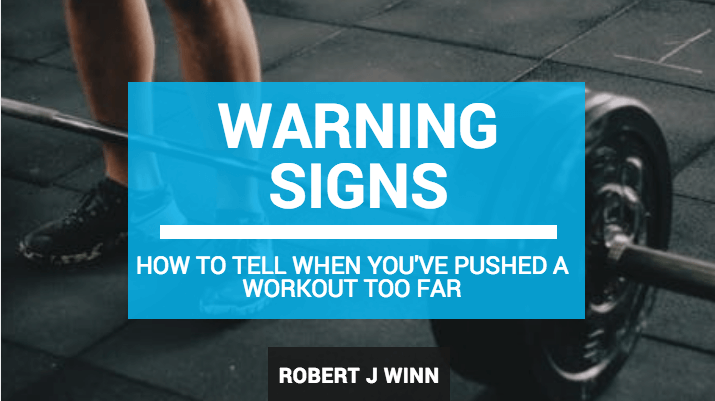How many times have you struggled to work through just one more mile on the track or make just a few more reps at the gym? Working out requires a constant self reassessment of your capabilities and boundaries, and it can sometimes be difficult to see where the line falls. Are you letting yourself breeze through easy workouts? Or worse – is your fitness craze pushing you to risk your health for the sake of one more mile, one more rep?
Contrary to popular belief, working out doesn’t need to be painful; in fact, it shouldn’t be. Pushing yourself beyond your capabilities can lead to serious consequences such as adrenal fatigue, exhaustion, injury, and even mental burnout. Take care of your body! If you start experiencing any of the below, you should reassess your workout intensity and consult a doctor to make sure that your trips to the gym aren’t hurting your health.
Exhaustion
As Dr. Jim Pivarnik, a professor of kinesiology at Michigan State University, commented in an article on the subject: “Being in peak condition is one step before dropping off the cliff to problems.” Your workouts should push you – but they should never, ever exhaust you. If you feel as though you can’t perform basic daily tasks or socially engage after a trip to the gym, you’re probably pushing yourself too hard. Left unchecked, workout fatigue can have serious emotional consequences such as depression, sleep irregularity, and irritability. A workout isn’t worth your mental health!
Elevated Resting Heart Rate
Your heart rate might tick up after your third cup of coffee or during a horror movie, but it shouldn’t stay elevated throughout the day. Having an elevated heart rate is completely normal during a trip to the gym, but you should consult a physician if you notice the fast beat continuing after you leave. Without proper rest and replenishment, over-exercising can lead to dehydration and electrolyte imbalances – both of which can contribute to an unusual increase in heart rate.
Frequent Soreness
We all expect to be sore now and again – but pain should never be considered as a “price” to pay for physical fitness. If your body always feels sore, you aren’t giving it enough time to recover between workouts. Rest days are vital to overall fitness; you need to give your nervous system and muscles the nutrients and time they need to strengthen. Try scaling back your high-intensity workouts to twice a week, and stagger lower-intensity workouts in between. Don’t forget to give yourself a rest day now and again! Eat well, hydrate, relax – and take the time to enjoy your time away from the gym.

